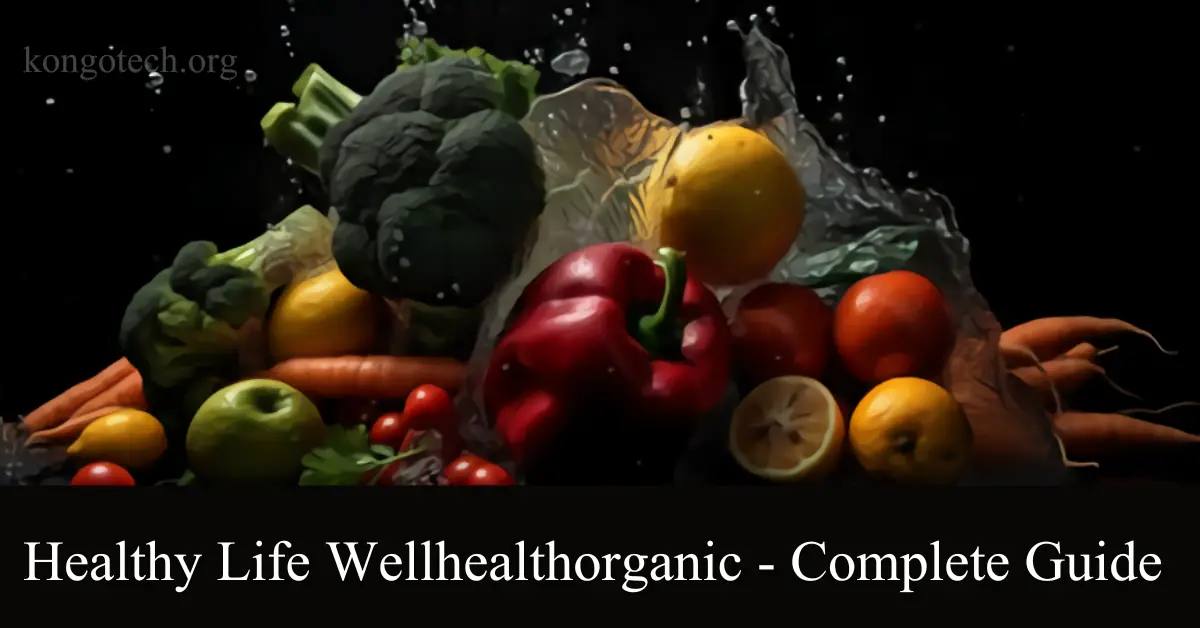The Potential of Organic Kongoteck Sustainable Solution

In recent years, the demand for organic farming practices and products has surged as consumers become increasingly conscious of the environmental and health implications of conventional agriculture. Organic farming, with its focus on natural inputs and sustainable practices, has gained traction as a viable alternative to conventional methods. Within this realm, one name stands out: Organic Kongoteck. Let’s delve into what makes Organic Kongoteck a game-changer in modern agriculture.
What is Organic Kongoteck?
Organic Kongoteck is a revolutionary approach to sustainable agriculture that emphasizes organic inputs, regenerative practices, and holistic management techniques. Developed through years of research and experimentation, Organic Kongoteck integrates traditional farming wisdom with modern scientific insights to create a system that promotes soil health, biodiversity, and long-term sustainability.
How Does Organic Kongoteck Work?
At its core, Organic Kongoteck prioritizes soil health as the foundation of a thriving ecosystem. By employing techniques such as crop rotation, cover cropping, composting, and minimal tillage, Organic Kongoteck nurtures the soil microbiome, enhances nutrient cycling, and improves water retention. These practices not only improve the fertility and structure of the soil but also contribute to mitigating climate change by sequestering carbon.
The Benefits of Organic Kongoteck’s
Environmental Sustainability
Organic Kongoteck is committed to preserving and enhancing the natural environment. By avoiding synthetic fertilizers and pesticides, Organic Kongotecks minimizes chemical runoff and soil contamination, thereby safeguarding water quality and biodiversity. Additionally, its emphasis on organic matter and carbon sequestration helps mitigate greenhouse gas emissions, making it a key player in the fight against climate change.
Health and Nutrition
Consumers are increasingly concerned about the quality and safety of their food. Organic Kongotecks addresses these concerns by producing crops that are free from synthetic chemicals and genetically modified organisms (GMOs). Studies have shown that organic produce tends to have higher levels of antioxidants and essential nutrients, contributing to better overall health and nutrition.
Also read: Taipei Self-Driving Gharry Unique Adventures
Economic Viability
Contrary to the misconception that organic farming is less profitable, Organic Kongotecks demonstrates that sustainability can go hand in hand with economic viability. By reducing input costs, improving soil fertility, and tapping into premium markets for organic products, Organic Kongotecks offers farmers a sustainable and profitable alternative to conventional agriculture.
Implementing Organic Kongotecks Tips for Success
Start Small, Think Big
Transitioning to Organic Kongotecks may seem daunting at first, but it’s essential to start small and gradually scale up. Begin by experimenting with cover cropping or incorporating compost into your soil management practices. As you gain experience and confidence, you can expand your organic acreage and explore advanced techniques.
Invest in Soil Health
Healthy soil is the cornerstone of Organic Kongoteck. Invest in soil testing to understand its nutrient levels and structure, and tailor your management practices accordingly. Focus on building organic matter through composting, mulching, and cover cropping, as healthy soils are more resilient to pests, diseases, and extreme weather events.
Embrace Diversity
Diversity is key to the success of Organic Kongotecks. Embrace crop rotation to break pest and disease cycles, improve soil structure, and optimize nutrient utilization. Incorporate diverse cover crops to enhance biodiversity above and below the ground, attracting beneficial insects and microorganisms that contribute to ecosystem health.
FAQs
Q1. Is Organic Kongoteck certified organic?
A1. Yes, Organic Kongoteck adheres to the strict standards of organic certification, ensuring that all inputs and practices meet organic requirements.
Q2. Can Organic Kongoteck be applied to all types of crops?
A2. Absolutely! Organic Kongoteck principles are applicable to a wide range of crops, including fruits, vegetables, grains, and legumes.
Q3. How does Organic Kongotecks compare to conventional farming in terms of yields?
A3. While initial yields may vary during the transition period, studies have shown that Organic Kongotecks can achieve comparable yields to conventional farming over the long term, especially in diversified cropping systems.
Conclusion
Organic Kongoteck represents a paradigm shift in modern agriculture, offering a sustainable and regenerative approach to farming that prioritizes soil health, environmental stewardship, and human well-being. By embracing Organics Kongoteck, farmers can not only cultivate healthy and nutritious food but also contribute to a healthier planet for future generations. Let’s embrace the power of Organic Kongotecks and pave the way for a more sustainable food system.




Your writing style is so engaging and easy to read It makes it a pleasure to read your blog and I always look forward to your new posts